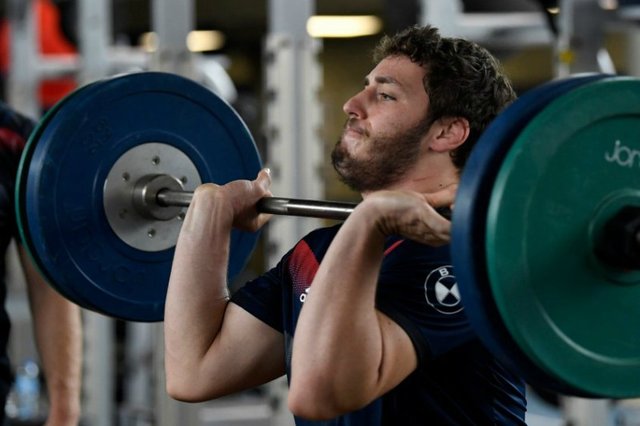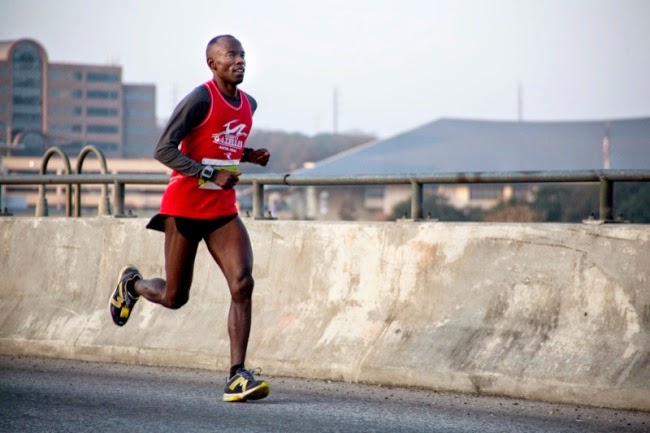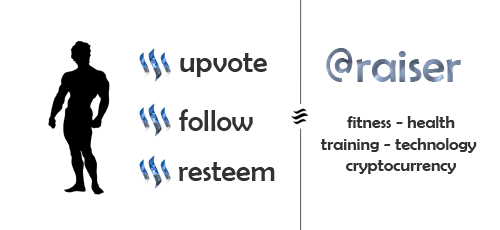Do We Lose Muscle Mass And Strenght On Holidays? | Gym Info
Hello Steemians! Today I want to share with you a topic that can worry us when summer approaches and it is probable that we will go on vacation to a place where we do not have the possibility of training as we usually do. What will happen if we do not train? Next we will see that it is the detraining, what causes it and what losses we can have in the adaptations generated by the training.

Image: Source
What is detraining?
Detraining is the total or partial loss of the adaptations produced by our previous training, due to inadequate or insufficient training stimulus. This can occur for various reasons:
- Leave the training completely.
- Very low training frequency.
- Inadequate volume and intensity.
- Non-specific training
Another important factor to keep in mind is the time we need to de-train. How much time do we need to lose those adaptations? This will depend on the time in which we are in that period of detraining, the longer we spend in that period, we will have a greater loss. And on the other hand, it will depend on the experience and level of initial form of the athlete. In addition, we must emphasize that detraining will be different in strength athletes and endurance athletes.
Detraining in strength athletes

Image: Source
In athletes who train strength and are not trained for some time, certain losses occur, both at the muscular level and in the nervous system. On the one hand, muscle mass is lost, with type 2 fibers being the most affected. On the other hand we lose certain neural adaptations that allow us to have a greater performance in strength.
In any case, it has been observed that a detraining of 4 weeks does not produce large changes in the strength levels. However, in highly trained athletes, it has been observed that in 2 weeks the eccentric force level can decrease and the power peak also. In a study with weightlifters who were 4 weeks without training, there were no significant changes in bench press and jump performance. In addition, in athletes with less experience, in the course of 6 weeks have not seen many changes or a large decline in strength performance.
On the other hand, if we add more time to this period of detraining and extend it from 8 to 12 weeks, the decreases in strength levels will be increasing. Therefore, we must be aware of all this when planning our training.
In short, for strength sports, a period of detraining from 4 to 6 weeks in people with experience, does not generate as many losses as we can think. Also, keep in mind that despite being untrained for a long time, our strength levels will not decrease below our initial levels before starting to train, because there is some residual physical form that will be always more high that physical form we had before we started training.
Detraining in endurance athletes

Image: Source
In endurance athletes, the losses produced by a period of inactivity are very different from those produced in strength athletes. On the one hand, our maximum oxygen consumption is reduced, which is closely related to performance in endurance tests. In addition, the cardiac output is reduced and the arterio-venous relationship worsens. We also have to know that in a period of 4 weeks, in highly trained athletes, between 4% and 14% of the maximum oxygen consumption is lost, so the losses occur much faster than in strength athletes.
Why do we lose that maximum oxygen consumption?
This is due to different reasons. In the first place, our cardiac output is lower, since the volume of ejection, that is, the blood we expel in each heartbeat, is lower. On the other hand, the volume of our blood also decreases, since by not doing physical activity we do not need as much quantity, which means that less oxygen reaches the cells.
Conclusion
We mainly need to know that endurance athletes lose more and more quickly than strength athletes. On the other hand, if we go on a vacation to the beach for a week, we do not have to worry about losing our physical shape in great magnitude, since in a week the losses that can occur are very small. Also, if during that week we maintain a healthy lifestyle, we move and eat properly, those losses will practically not occur, and when we return to training we will probably be more rested and with more energy than before leaving.
References
- Mujika, I, and Padilla, S. Muscular characteristics of detraining in humans. Med Sci Sports Exerc 33:1297-1303, 2001.
- Hortobagyi, T, Houmard, JA, Stevenson, JR, Fraser, DD, Johns, RA, and Israel, RG. The effects of detraining on power athletes. Med Sci Sports Exerc 25:929-935, 1993.
- Kellis, E, Arabatzi, F, and Papadopoulos, C. Muscle co-activation around the knee in drop jumping using the co-contraction index. J Electromyogr Kinesiol 13:229-238, 2003.
- Campos, GE, Luecke, TJ, Wendeln, HK, Toma, K, Hagerman, FC, Murray, TF, Ragg, KE, Ratamess, NA, Kraemer, WJ, and Staron, RS. Muscular adaptations in response to three different resistance-training regimens: Specificity of repetition maximum training zones. Eur J Appl Physiol 88:50-60, 2002.
- Kelley, GA, and Kelley, KS. Progressive resistance exercise and resting blood pressure: A meta-analysis of randomized controlled trials. Hypertension 35:838-843, 2000.
- Kraemer, WJ, Koziris, LP, Ratamess, NA, Häkkinen, K, Triplett-Mc- Bride, NT, Fry, AC, Gordon, SE, Volek, JS, French, DN, Rubin, MR, Gómez, AL, Sharman, MJ, Lynch, JM, Izquierdo, M, Newton, RU, and Fleck, SJ. Detraining produces minimal changes in physical performance and hormonal variables in recreationally strength-trained men. J Strength Cond Res 16:373-382, 2002.
- Hurley, BF. Effects of resistance training on lipoprotein-lipid profiles: A comparison to aerobic exercise training. Med Sci Sports Exerc 21:689-693, 1989.
- Bush, JA, Kraemer, WJ, Mastro, AM, Triplett-McBride, T, Volek, JS, Putukian, M, Sebastianelli, WJ, and Knuttgen, HG. Exercise and recovery responses of adrenal medullary neurohormones to heavy resistance exercise. Med Sci Sports Exerc 31:554-559, 1999.
- Allen, GD. Physiological and metabolic changes with six weeks of detraining. Aust J Sci Med Sport 21:4-9, 1989.

I hope this post will be useful, it has taken me time to do it, so your upvote and comment would motivate me a lot!
Thank you so much for visiting my blog!
